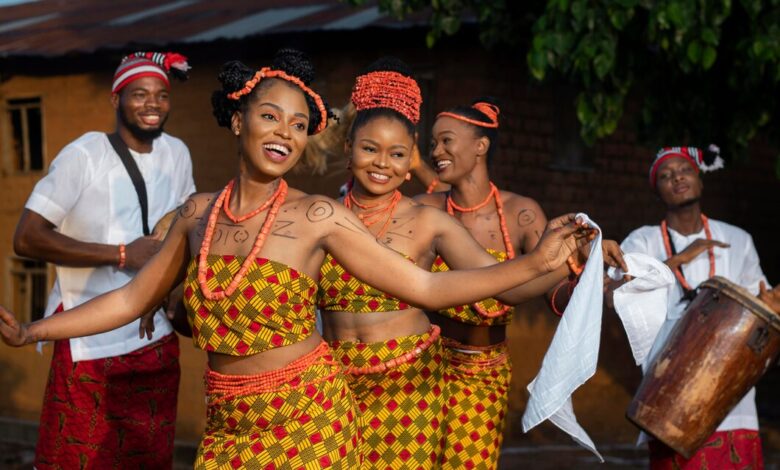Top 10 Cultural Festivals in Nigeria

Nigeria, known for its rich cultural diversity, celebrates a multitude of festivals throughout the year. These festivals are vibrant expressions of tradition, heritage, and community unity. Here’s a look at the top 10 cultural festivals in Nigeria that showcase the country’s cultural tapestry:
1. Osun-Osogbo Festival
The Osun-Osogbo Festival is held annually in Osun State to honor the river goddess Osun. It attracts thousands of participants and spectators from Nigeria and beyond, featuring rituals, performances, and a grand procession to the Osun Sacred Grove, a UNESCO World Heritage site.
2. Durbar Festival
The Durbar Festival is celebrated in several northern Nigerian cities, including Kano, Katsina, and Zaria. It marks the end of Ramadan or other significant Muslim festivals. The festival features colorful parades of horsemen in traditional attire, showcasing cultural heritage and military prowess.
3. Argungu Fishing Festival
The Argungu Fishing Festival is one of the oldest and most famous cultural festivals in Nigeria, held annually in Argungu, Kebbi State. It includes a fishing competition in the Matan Fada River, where participants use traditional methods to catch fish. The festival also features cultural displays, music, and dance.
4. Eyo Festival
The Eyo Festival is a traditional masquerade festival held in Lagos, often referred to as the “Adamu Orisha Play.” It is a colorful procession of masqueraders (Eyo) dressed in white robes, hats, and painted faces, symbolizing purity and spiritual cleansing. The festival celebrates the transition of a soul to the afterlife in Yoruba culture.
5. New Yam Festival (Iri Ji)
The New Yam Festival is celebrated by various ethnic groups in Nigeria, including the Igbo, Idoma, and Tiv people. It marks the beginning of the harvest season and is a time of thanksgiving to the gods for a bountiful harvest. The festival features cultural dances, feasting on yam dishes, and traditional rituals.
6. Ojude Oba Festival
The Ojude Oba Festival is a cultural extravaganza celebrated by the Ijebu people of Ogun State. It honors the traditional ruler (Oba) and includes colorful parades of age groups (regberegbe), cultural performances, and horse-riding displays. The festival promotes unity, cultural heritage, and community development.
7. Igogo Festival
The Igogo Festival is celebrated by the people of Owo in Ondo State to honor their ancestors and historical heroes. It includes a grand procession of the Olowo of Owo (traditional ruler), chiefs, and masquerades. The festival features music, dance, and rituals to appease the ancestors and seek blessings for the community.
8. Ofala Festival
The Ofala Festival is a colorful cultural event celebrated by the Igbo people, particularly in Anambra and Enugu States. It honors the traditional ruler (Igwe) and marks the climax of the annual cultural calendar. The festival features traditional rites, cultural displays, masquerades, and performances by age groups.
9. Sharo/Shadi Festival
The Sharo or Shadi Festival is a traditional Fulani festival celebrated in northern Nigeria, particularly among the Fulbe and Hausa communities. It involves a public demonstration of bravery and endurance by young Fulani men. The festival promotes traditional values, masculinity, and community solidarity.
10. Olojo Festival
The Olojo Festival is celebrated by the Yoruba people in Ile-Ife, Osun State, to commemorate the creation of the world and the coronation of the Ooni of Ife (supreme traditional ruler). It includes spiritual rituals, cultural performances, and the symbolic appearance of the Ooni wearing the sacred crown (Ade-Are).
Preserving Heritage and Promoting Unity
These cultural festivals in Nigeria are more than just celebrations; they are vital expressions of identity, heritage preservation, and community cohesion. They attract tourists, promote cultural tourism, and foster unity among Nigeria’s diverse ethnic groups. As Nigeria continues to embrace its cultural diversity, these festivals remain integral to the country’s cultural tapestry and national pride.




